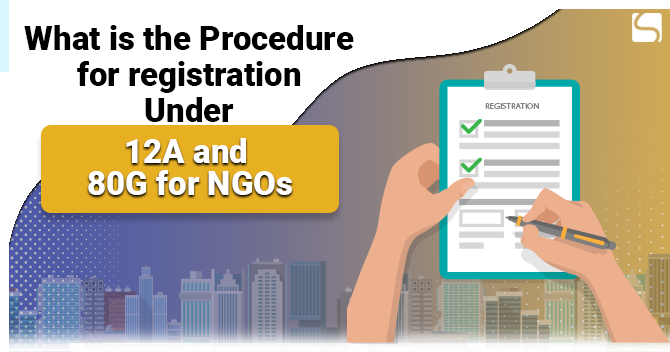Know the Compliances under Societies Registration Act, 1860

Karan Singh | Updated: Mar 09, 2021 | Category: NGO, Society
Before we discuss the compliances under Societies Registration Act, 1860 let us first discuss Society Registration. In India, due to the increased expense level, a single person cannot take responsibility for Society’s welfare. Nowadays, peoples in India having the same wish for the social welfare of society associate with each other and contribute from each one, accumulate a sum that is so enough, that a longing welfare activity can be done. In India, Society Registration can be done under the Societies Registration Act, and after the registration, it is mandatory to file all the compliances under Societies Registration Act, 1860.
After introducing CSR or Corporate Social Responsibility provisions in Companies Act, 2013 and the number of societies wanting to get registration has increased with great speed. In this blog, we discuss the important points while forming a society and compliances under Societies Registration Act, 1860.
As per Section 20 under the Societies Registration Act, 1860 following are some eligible to apply for Society Registration:
- Charitable Societies.
- Military orphan funds or societies formed at the various presidencies of India.
- If the societies established for:
- The promotion of fine arts, science, and commerce.
- The diffusion of Political Education and useful knowledge.
- The foundation of reading-rooms or libraries for general use among the members.
- Galleries and public museums of:
- Paintings and other art works.
- Collections of history.
- Philosophical Inventions.
- Mechanical Inventions.
- Designs and Instruments.
Table of Contents
Important Points to Remember While forming a Society
Before the Society Registration, it is important to remember all the essential points, and you can check the same below:
- Any seven or more individual are allied for any Literacy, Scientific, Charitable purpose by contributing their names to an MOA (Memorandum of Association) and filing the same with the Scoiety’s Registrar for themselves into a Society under the Societies Registration Act, 1860.
- Societies that recommend operating on all the bases in India must have a minimum of one member from at least seven different states of the Union of India.
- The Emblems Act, 1950 excludes the use of any name, symbols, official seals, etc., as stated in the Act without earlier permission of the competent authority. The societies planning to seek registration are instructed to consult this Act also before proposing the name for Society Registration.
- If the suggested name is identical by which any other society has been registered or look like such name which is likely to deceive the member of a society or the public, such name may be avoided.
- The MOA (Memorandum of Association) must contain the following details or information:
- Society’s Name.
- Society’s Objects.
- The names/professions/addresses of the governors, directors, council, committee, or other governing body to whom by the guidelines of the Society and the management of Society’s affairs is entrusted.
- A copy of the Society’s Rules and Regulations, certified to be a precise copy by not less than 3 members of the governing body and it must be filed with the MOA (Memorandum of Association).
- All the signatures of the keen persons or subscribers given in the MOA must be witnesses by an Oath Commissioner, Advocate or Gazette Officer, Notary Public or Magistrate 1st Class with their original rubber stamps and complete in all respect.
- Always remember that the member of the Governing Body cannot be outside the list of the keen subscribers or persons to the Memorandum.
- All the Society’s Rules and Regulations must be filed along with the MOA with registering.
- If all the rules and regulations of the Society are unreliable with the provisions of the Societies Registration Act, 1860 and they are not valid and simple filing with registering authority for the purpose of Society registration cannot make them valid.
- Affidavit of Rs. 10/- Non-Judicial Stamp Paper from the Society’s Secretary/President must be equipped regarding the relationship between the subscribers to the Memorandum and an affidavit that the Society’s name will be transformed if the proposed name already found registered in our records.
- Rs. 50/- registration fee will be demanded when the formalities are complete, and the Registrar of the Societies will approve the grant of registration.
- Election Card or Ration Card or any other ID proofs of all the proposed persons are required.
What are the Mandatory Post-Registration Compliances under Societies Registration Act, 1882?
A most common problem has been noticed after the Society Registration is that they do not follow the Mandatory Post-Registration Compliances under Societies Registration Act, 1882, which may attract penalty to Society and its members along with Society Registration may be liable to cancellation. Every Society in India has to work within the context, as mentioned in the Memorandum of Association and Rules & Regulations as described at the time of registration. Following are some non-compliances under Societies Registration Act:
- Non-Conduct of General and Board Meetings.
- Non-Maintenance of Accounts Records.
- Non-Filing of ITR or Income Tax Return.
- Using the Society’s fund for personal use.
- Non-Audit of Books of Accounts on yearly basis.
- Non-Intimation of Governing Body List on Yearly Basis or Change of Governing Body to Registrar of Societies.
Conclusion
One of the common problems observed after Society registration is that they do not follow the mandatory compliances after registration. This may attract penalty to Society and its members, and the Society registration may be liable to cancellation. Therefore ensure complying with the compliances under Societies Registration Act.
Also, Read: What is the Purpose of Society Registration? – A Complete Overview














